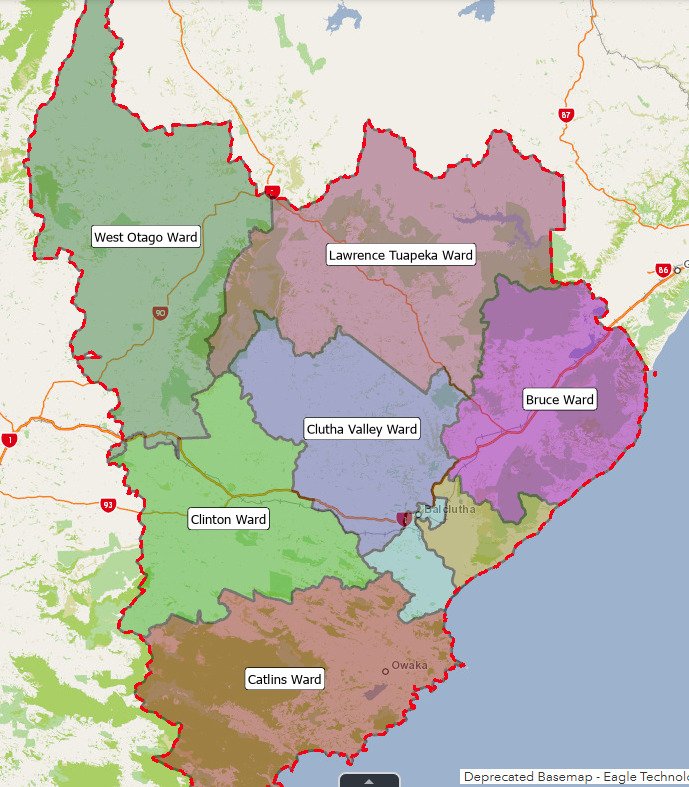Politics
Countdown Begins for Clutha District Council Election Candidates

Prospective candidates for the upcoming Clutha District Council elections are facing a tight deadline as the nomination period approaches its conclusion. Individuals interested in running for council positions must meet specific requirements, including being over 18 years of age, enrolled to vote, and submitting a nomination fee of $200. The nomination forms can be completed online or obtained in paper format from local council offices, libraries, and visitor information centres.
The Clutha District Council has actively sought candidates by advertising in local publications such as The Clutha Leader and the Otago Daily Times multiple times since June. Additionally, a video of the candidates’ information evening, which took place in Balclutha on July 9, 2023, is available on the council’s YouTube channel for those seeking more information.
Changes to Council Structure and Compensation
Significant changes have been made to the council’s electoral processes, following a review conducted last year. The number of councillors has been reduced from 14 to nine, which could lead to increased remuneration for elected members. The council’s compensation is determined by the Remuneration Authority, which has allocated a pool of $420,000 for the new council, excluding the mayor. It will be up to the newly elected council to decide how to distribute these funds among its members.
As of July 21, 2023, only two candidates have publicly announced their intention to run, including Ken Payne, the current deputy mayor, who is vying for the mayoral position. This limited candidate pool raises concerns about representation and the future direction of the council.
Rising Rates and Community Concerns
In the context of local governance, a recent report from the New Zealand Taxpayers Union highlights a significant increase in rates, which have surged by 16.59% in the past year and 39.85% over the last three years. This information underscores the financial pressures faced by residents and the importance of effective leadership in managing local resources.
As the nomination deadline approaches, the Clutha District Council urges potential candidates to act swiftly. The outcome of this election could have lasting implications for the community, shaping policies and addressing the pressing issues that residents face today.
-

 Sports2 months ago
Sports2 months agoNetball New Zealand Stands Down Dame Noeline Taurua for Series
-

 Entertainment2 months ago
Entertainment2 months agoTributes Pour In for Lachlan Rofe, Reality Star, Dead at 47
-

 Entertainment2 weeks ago
Entertainment2 weeks agoNew ‘Maverick’ Chaser Joins Beat the Chasers Season Finale
-

 Sports2 months ago
Sports2 months agoSilver Ferns Legend Laura Langman Criticizes Team’s Attitude
-

 Politics3 weeks ago
Politics3 weeks agoNetball NZ Calls for Respect Amid Dame Taurua’s Standoff
-

 Entertainment2 months ago
Entertainment2 months agoKhloe Kardashian Embraces Innovative Stem Cell Therapy in Mexico
-

 World3 months ago
World3 months agoPolice Arrest Multiple Individuals During Funeral for Zain Taikato-Fox
-

 Sports2 months ago
Sports2 months agoGaël Monfils Set to Defend ASB Classic Title in January 2026
-

 Entertainment4 weeks ago
Entertainment4 weeks agoTyson Fury’s Daughter Venezuela Gets Engaged at Birthday Bash
-

 Sports4 weeks ago
Sports4 weeks agoHeather McMahan Steps Down as Ryder Cup Host After Controversy
-

 Entertainment4 weeks ago
Entertainment4 weeks agoTyson Fury’s Daughter Venezuela Gets Engaged at Birthday Bash
-

 World4 weeks ago
World4 weeks agoNew Zealand Firefighters Plan Strike on October 17 Over Pay Disputes





















